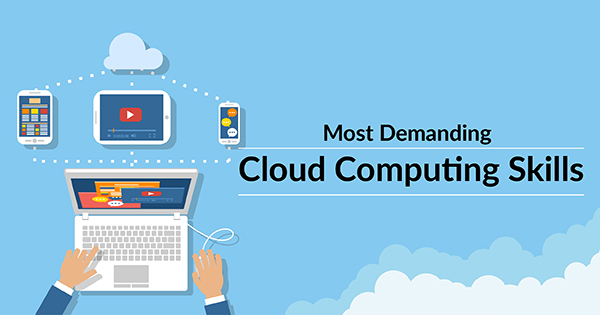
What exactly is cloud computing?
Cloud computing refers to a collection of computing resources that are accessible over the Internet rather than on your own machines or servers. Users pay per user for cloud-based services, regardless of the volume of capacity required, the number of users for a specific programme, or the number of resources used.
Cloud storage services are classified into three types:
- Infrastructure (servers, storage, and networking)
- Platform (databases, operating systems, and development tools)
- Software (applications)
Cloud hosting is also advantageous for businesses that do not wish to invest in and manage physical technology infrastructure, particularly if they do not intend to access software or databases on a regular basis. Hospitals, on the other hand, are less likely to benefit from cloud computing because they frequently run mission-critical applications in their own on-premises cloud services.
Cloud Computing Skills You Need To Pick Up In 2022
Learn Cloud Computing
1. Cloud Security:
The very nature of cloud computing—outsourcing the storage and processing of often-sensitive business data—requires a strong emphasis on security and trust. Because a single security breach has the potential to expose user records, steal intellectual property, and permanently damage a company’s image, IT security is (or should be) a top priority in most organisations.
The demand for cybersecurity expertise is enormous and growing by the day, but it is particularly acute in the cloud. Simplilearn’s free Certified Cloud Security Professional (CCSP) course, which includes seven hours of self-paced YouTube tutorials, is a good place to begin. This course will educate you on common vulnerabilities and threats, as well as cloud platform and design security. When you’re ready to continue your certifications, enrol in the entire CCSP course.
2. Machine Learning and AI:
Addition to cloud computing, machine learning and artificial intelligence are growing industries. They have, however, become essential cloud computing skills since major cloud providers began to provide software and services that make cloud-based AI and machine learning applications more accessible. Cloud computing, formerly known as “infrastructure as a service” by Amazon’s AWS division, will provide organisations of any size with the computing resources and infrastructure required to experiment with AI and machine learning.
As the machine learning industry matures, the distribution of machine learning applications over the cloud is now referred to as machine learning as a network, or MLaaS, and is expected to grow at a compound annual growth rate (CAGR) of 43 percent through 2023. Machine learning and artificial intelligence, like cryptography, are in desperate need of talent.
3. Database Skills:
Database Skills On a global scale, we generate 2.5 quintillion bytes of data every day, much of it unstructured but critical to businesses. The desire to extract useful knowledge from these datasets, which are mostly stored on cloud systems, drives the demand for cloud management specialists to handle, store, and access data. Now is the best time to learn a database querying language and the platform that goes with it if you’re an IT expert. SQL is the de facto fundamental database language to learn. If you want to broaden your horizons, try learning MySQL, MongoDB, or Hadoop.
4. DevOps:
DevOps is a software development approach that takes into account the entire software lifecycle, from design to maintenance. It comes from the phrase “developmental operations.” Businesses can use the DevOps methodology to automate these upgrades and distribute them more quickly and effectively. It represents a significant advancement in the field of cloud computing. As a result, incorporating DevOps into your cloud management capability set is a wise move.
5. Cloud Migration and Multi-cloud Deployment:
As organisations begin to transition native IT applications to cloud services or from one cloud platform to another, they are looking for experts with integration and conversion experience. This isn’t as simple as turning on a light switch; maintaining data confidentiality and stability while minimising downtime requires sophisticated cloud storage expertise. Although it is still a good idea to avoid limitations, many businesses require employees who are familiar with the three major cloud systems.
If you have AWS, Azure, and Google Cloud expertise, you will have more job opportunities and value within a given company. Simplilearn’s 12-month Post Graduate Program in Cloud Computing, developed in collaboration with CalTech CTME, offers a thorough education in all three major cloud platforms.
6. Architecture without a server
Serverless architecture is one of the cloud computing capabilities you should learn this year. Serverless architecture (also known as serverless computing or feature as a service, FaaS) is a software development style in which programmes are implemented by a third-party package, eliminating the creator’s need to manage server hardware and software components.
The serverless architecture eliminates the need for infrastructure to perform basic communications. Especially if programmers want to keep track of an app. Serverless Architecture can be used by experts or developers pursuing cloud infrastructure expertise to create modular applications that are easier to cover, update, or promote.
conclusion
Finally, these are the most in-demand cloud computing skills you can learn this year. These are the top cloud computing skills that will help you advance in your cloud computing career. If you are sufficiently qualified with the most required technical skills, you will have better prospects in the dynamic cloud computing industry.







